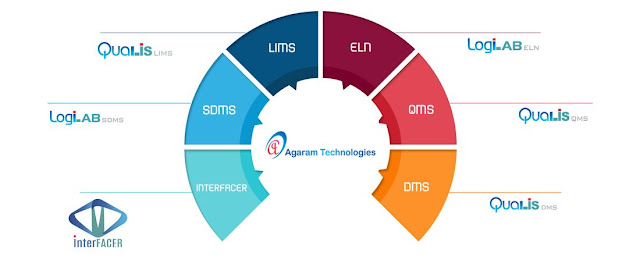An Electronic lab notebook software commonly known as an ELN or a digital lab
notebook is a software system planned for scientists to effortlessly document
their research work and eliminate the need for a paper-based alternative.
ELNs can
range from simple models with a word-processor-like interface, through to more
cutting-edge models with features allowing data management, inventory
management, collaboration, and assimilation with other laboratory software.
Moving to an electronic notebook can deliver several benefits to organizations
such as searching, sharing, password safety and backups, regularly providing
companies with extensive time and money savings, and building them ideal places
to hoard intellectual property (IP).
As well as
presenting the ultimate capabilities of a paper replacement ELN, the Electronic
lab notebook offers an extensible framework that houses additional
functionality for precise areas of scientific research. Using standard
technologies, the ELN Software offers a consistent format for universal scientific
collaboration. It allows easy access to, and translation of, data for decision
making and business analysis tasks, such as analytical studies, risk assessment
and generation of patent applications etc.
The ELN is
an innate data management tool for all castigations. ELN enables organizations
to quickly and cost-effectively create a foundation for universal knowledge
management and collaboration across R&D business units. Carrying together
every aspect of a researcher’s everyday activities, the ELN delivers a common
view of data across disparate R&D areas, allowing complete visibility of
research information, containing instrument data, statistical analysis,
graphical data and text-based content beside with human observations.
Effectiveness is improved by the inbuilt workflow capability supporting the
review and witnessing procedures.
Lessening
the managerial burden related to reporting generation leaves more time for
invention. The ability to add content to be incorporated in a report, such as
specific data analysis and graphical content, makes report creation easy and
rapid. The regulation and support for
many different data types mean the ELN houses the requirements of all
scientists, with the capability to cater for highly regulated, procedure-based
experimentation, as well as the volatile nature of early-stage research.
In every
phase of an experiment, ELN gives experts a mutual view of data across
different research areas, allowing complete visibility of experimental info,
including instrument data, LIMS content, statistical analysis, graphical
statistics etc. Effectiveness is further improved by the in-built task flow
capability, which guarantees that tasks are finished within a specified time
frame.

Comments
Post a Comment